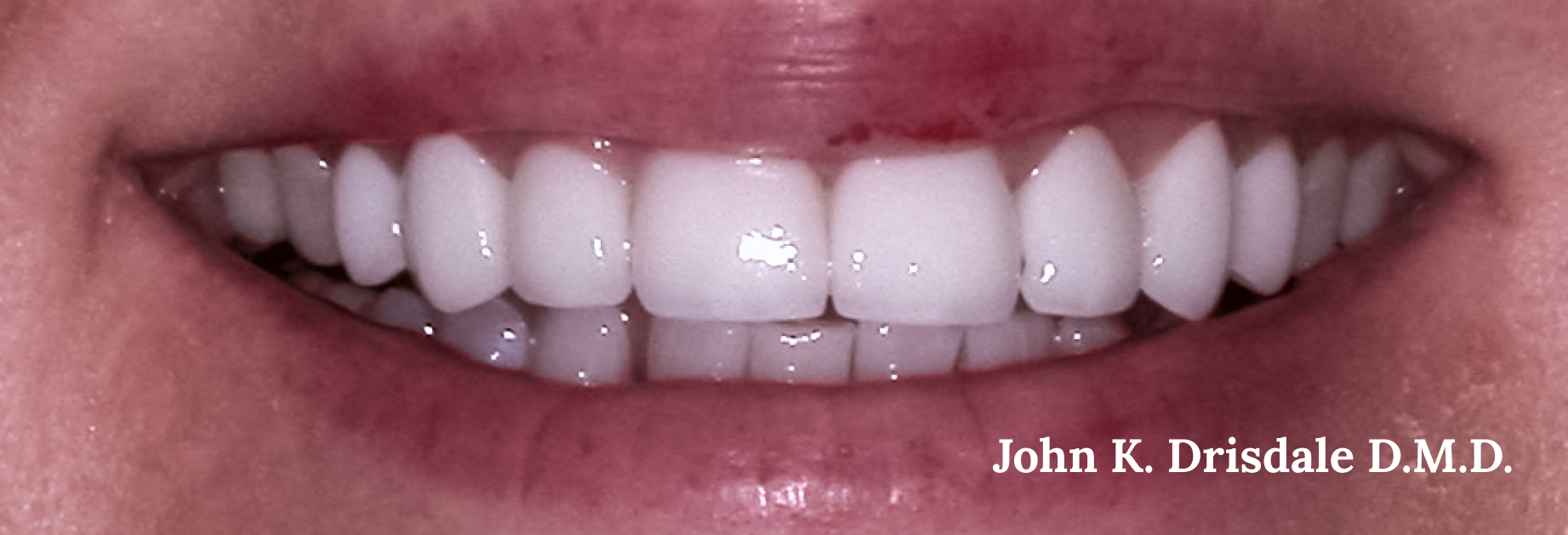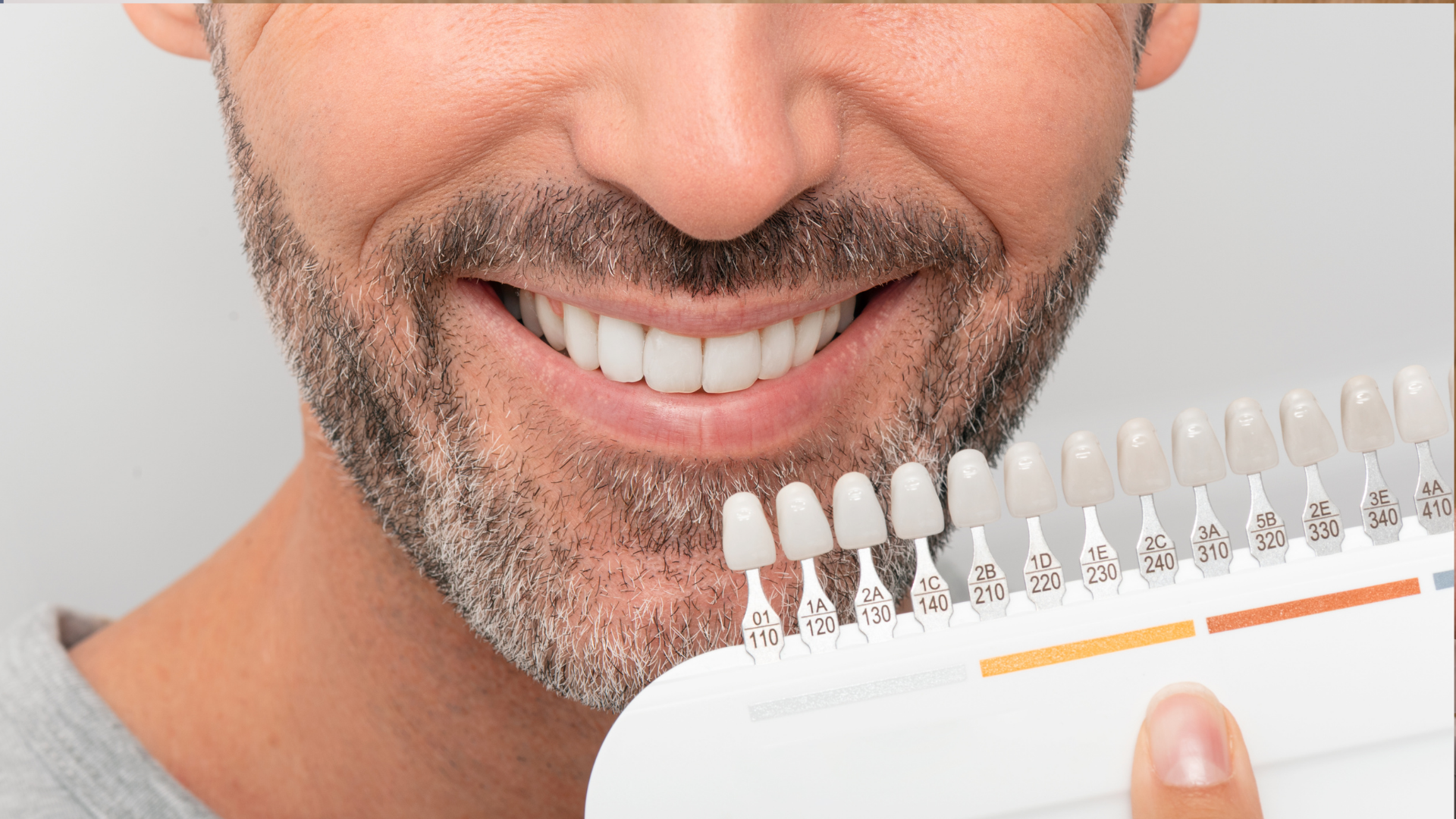How Much Is Dental Bonding?
Dental bonding is a popular cosmetic dental procedure that can help improve the appearance of your teeth. It is a relatively noninvasive and affordable option for addressing minor tooth damage, discoloration, and other imperfections. In this article, we will discuss what dental bonding is, how it works, and the benefits it offers. We will also explore the candidates for dental bonding, the procedure itself, and the aftercare involved. Additionally, we will delve into the factors that affect the cost of dental bonding, the average cost, and insurance coverage. Finally, we will touch on some alternatives to dental bonding, such as dental veneers, dental crowns, and teeth whitening.
Key Takeaways
- Dental bonding is a noninvasive and affordable cosmetic dental procedure.
- It can address minor tooth damage, discoloration, and other imperfections.
- Candidates for dental bonding include those with chipped teeth, small gaps, and misshapen teeth.
- The procedure involves the application of a tooth-colored resin to the affected tooth.
- Aftercare for dental bonding includes regular oral hygiene practices and avoiding habits that can damage the bonded tooth.


What is Dental Bonding?
Definition of Dental Bonding
Dental bonding is a versatile cosmetic procedure that uses tooth-colored resin to repair and enhance teeth. It is a minimally invasive alternative to veneers or crowns, offering natural-looking results. The process is quick, painless, and requires minimal removal of tooth enamel. Dental bonding is a cost-effective option and offers immediate aesthetic improvement.
How Dental Bonding Works
Dental bonding is a relatively quick and painless cosmetic technique used to improve and repair teeth. Unlike other cosmetic dentistry procedures, dental bonding requires minimal time and preparation. The process begins with the dentist matching the pigmentation of the resin to your natural tooth color. No anesthesia is needed as the procedure is non-invasive. The dentist then applies a thin layer of bonding resin to the surfaces of your teeth, without the need for filing them down like with dental veneers. Dental bonding is a cost-effective alternative to procedures like veneers or crowns, providing aesthetic improvement by repairing chipping, cracks, discoloration, and gaps between teeth. It is a durable option that can last for several years with good oral hygiene and routine dental care.
Benefits of Dental Bonding
Dental bonding provides various benefits for cosmetic improvements that improve the appearance of teeth. Here are some advantages of dental bonding:
- Quick and Convenient: In most cases, dental bonding only requires one trip to the dentist, making it a very convenient option. Bonding is quicker and more effective than other cosmetic dental procedures that may require multiple appointments.
- Cost-Effective: Dental bonding is less expensive than cosmetic dental procedures such as veneers or crowns. It is a practical means of enhancing teeth' looks without spending a fortune.
- Aesthetic Improvement: Bonding can successfully repair and improve the appearance of teeth. Moreover, it can treat several cosmetic concerns, such as chipping, cracks, discoloration, and gaps between teeth. By matching the resin substance used in bonding to the color of the teeth, the process creates seamless and unnoticeable
- Protection for Tooth Structure: Dental bonding can offer a protective coating for tooth structure and cosmetic advantages. Additionally, the resin material used in bonding can help protect the tooth from further damage, such as cracks or chips, and avoid discomfort.
- Simple Maintenance: Bonded teeth are often simple to maintain. Care for them like your natural teeth with regular brushing, flossing, and dental checkups. However, bonded teeth may stain more quickly, so avoid
Candidates for Dental Bonding
Conditions that Can be Treated with Dental Bonding
Dental bonding is a versatile treatment that can address a variety of dental concerns. It is commonly used to repair chipped or cracked teeth, close gaps between teeth, and correct misshapen teeth. In addition, dental bonding can be used for restorative purposes, such as filling cavities with a composite material that blends seamlessly with natural enamel. Dentists may also recommend tooth bonding to protect exposed teeth roots in cases of gum recession. With its ability to address both cosmetic and restorative issues, dental bonding offers a practical and effective solution for many patients.
Who is a Good Candidate for Dental Bonding
Dental bonding is a versatile cosmetic treatment that can address various dental issues. It is an ideal option for individuals looking to fix a single cracked tooth or enhance their smile overall. The procedure is non-invasive and causes minimal discomfort, making it suitable for those who prefer a more conservative approach to cosmetic dentistry. Additionally, dental bonding is a cost-effective solution compared to other cosmetic dental procedures like veneers or crowns. It can successfully repair and improve the appearance of teeth, treating concerns such as chipping, cracks, discoloration, and gaps between teeth. With proper maintenance, bonded teeth can provide a beautiful and durable smile. However, it's important to note that dental bonding may not be suitable for everyone, and a consultation with a dentist is recommended to determine if it is the right option for you.
Who is Not a Good Candidate for Dental Bonding
While dental bonding is a versatile and effective cosmetic treatment, it may not be suitable for everyone. Individuals with extensive tooth decay or large cavities may not be good candidates for dental bonding. Additionally, those with severe tooth discoloration that cannot be adequately addressed with bonding may need alternative treatments. It is important to consult with a dentist to determine the best course of action for your specific dental needs.
- The Cost Of Dental Bonding, Benefits and durations: When considering dental bonding, it is important to understand the cost implications. The cost of dental bonding can vary depending on factors such as the extent of the treatment and the location of the dental practice. On average, dental bonding can cost between $100 and $400 per tooth. It is worth noting that dental insurance may not always cover the cost of dental bonding, as it is considered a cosmetic procedure. However, some insurance plans may provide partial coverage. It is recommended to check with your insurance provider to determine your coverage options.
In summary, while dental bonding is a popular and affordable cosmetic treatment, it may not be suitable for individuals with extensive tooth decay, large cavities, or severe tooth discoloration. It is important to consult with a dentist to determine the best treatment option for your specific dental needs.
Procedure for Dental Bonding
Preparation for Dental Bonding
Before the dental bonding procedure, your dentist will examine your teeth to determine if you are a good candidate for bonding. They will also discuss the expected results and address any concerns you may have. If you have any cavities or other dental issues, they will need to be treated before the bonding can take place.
Once you are ready for the procedure, your dentist will prepare the surface of your teeth by lightly conditioning it and applying a bonding liquid. This helps the bonding material adhere to your teeth more effectively. After the liquid sets, the dentist will apply the bonding resin and sculpt it into the desired shape. A special light activation is then used to harden the resin, and the final result is trimmed, smoothed, and polished to blend in with your natural teeth.
It's important to note that dental bonding is a relatively quick and painless process that can be completed in a single office visit. However, the bonding material is not as strong as natural tooth enamel and may be more prone to staining, chipping, or breaking. Proper care and maintenance, such as regular brushing, flossing, and dental checkups, can help prolong the lifespan of your bonded teeth.
Important Tip: Avoid consuming hard foods that can increase the risk of chips and cracks in your bonded teeth. Additionally, limit the intake of food and beverages that cause tooth staining, such as coffee, red wine, and berries. If you do consume stain-causing beverages, use a straw to minimize contact with your bonded teeth. Stay up to date with regular dental checkups and promptly address any damage or bite problems you notice.
Here is a table summarizing the cost of dental bonding in different regions:
| Region | Average Cost |
|---|---|
| USA | $300 - $600 |
| Europe | €250 - €500 |
| Asia | $150 - $300 |
Please note that these are average costs and may vary depending on the specific dental clinic and the complexity of the bonding procedure.
Steps Involved in Dental Bonding
After the tooth has been prepared, the dentist will apply a bonding liquid to enhance the adhesive properties of the bonding material. Next, a tooth-colored resin is carefully applied and molded to achieve the desired shape. Attention to detail and artistic proficiency are crucial to ensure a natural-looking result. Once the resin is shaped, a special light is used to quickly harden and set the material. Any necessary adjustments to the shape are made, and the bonded tooth is polished for a seamless finish.
In summary, the steps involved in dental bonding are:
- Tooth preparation
- Application of bonding liquid
- Application and molding of tooth-colored resin
- Hardening and setting of the material
- Shape adjustments
- Polishing for a natural appearance.
The cost of dental bonding can vary depending on several factors, including the number of teeth being bonded, the complexity of the case, and the location of the dental practice. On average, the cost of dental bonding ranges from $100 to $400 per tooth. Insurance coverage for dental bonding may be available, but it is important to check with your insurance provider for specific details.
It is important to note that dental bonding is a cost-effective alternative to other cosmetic dental procedures, such as veneers or crowns. It can improve the appearance of teeth by repairing chips, cracks, discoloration, and gaps. However, it is important to keep in mind that the bonded resin material is not as strong as natural tooth enamel and may be more prone to staining, chipping, or breaking.
If you are considering dental bonding, it is recommended to consult with a dentist to determine if you are a good candidate for the procedure and to discuss the potential benefits and duration of the bonding treatment.
Aftercare for Dental Bonding
After undergoing dental bonding, it is important to take proper care of your bonded teeth to ensure their longevity and maintain their appearance. Here are some tips to help you keep your cosmetic dental bonding in good condition:
- Take care while consuming hard foods to reduce the risk of chips and cracks.
- Brush and floss your teeth regularly.
- Limit food and beverages that cause tooth staining, such as coffee, red wine, and berries, and avoid them completely for the first 48 hours after your procedure.
- Drink tea and other stain-causing beverages with a straw.
- Keep up to date with regular dental checkups and visit your dentist as soon as you notice any damage or bite problems.
- Avoid biting your nails or chewing hard objects.
It is important to note that while dental bonding is a durable and effective cosmetic dental treatment, the plastic resin used is not as strong as natural tooth enamel. Therefore, it is more likely to stain, chip, or break than natural teeth. On average, dental bonding typically lasts three to five years before repair is needed.
If you are considering dental bonding, consult with your dentist to determine if it is the right option for you. While dental bonding is ideal for fixing small issues, it may not be suitable for widespread decay or more serious problems with bite alignment. In such cases, your dentist may recommend alternative treatments such as crowns, implants, or orthodontic procedures.
The cost of dental bonding can vary depending on several factors, including the extent of the treatment, the location of the dental practice, and any additional procedures required. On average, the cost of dental bonding ranges from $300 to $600 per tooth. It is important to check with your dental insurance provider to see if dental bonding is covered under your plan.
In conclusion, dental bonding is a popular and affordable cosmetic dental treatment that offers numerous benefits. With proper aftercare and regular dental checkups, you can enjoy the aesthetic advantages of dental bonding for several years.
Cost of Dental Bonding
Factors Affecting the Cost of Dental Bonding
The cost of dental bonding can vary based on several factors. One important factor is the complexity of the procedure. Repairing a small chip will typically cost less than reshaping multiple teeth. Additionally, the number of teeth that need bonding can also affect the cost. The more teeth that require bonding, the higher the overall cost may be. It's important to note that dental bonding is generally considered a cost-effective cosmetic dental treatment. It is less expensive than procedures like veneers or crowns because it requires less preparation and can often be completed in a single visit. At Aesthetic General Dentistry of Frisco, we strive to provide transparent and affordable pricing for tooth bonding procedures. We understand that cost is an important consideration for our patients, which is why we discuss all financial aspects during the consultation. Our office also explores various payment options and dental insurance benefits to make the procedure as accessible as possible. We believe that everyone deserves a beautiful smile and strive to make cosmetic dental treatments, like tooth bonding, accessible to all.
Average Cost of Dental Bonding
The cost of dental bonding can vary depending on several factors. On average, dental bonding costs $300 to $600 per tooth. However, the total cost will depend on how many teeth need to be treated. Most people spend between $1,967 and $6,400 in total for dental bonding. It's important to note that dental insurance may cover a portion of the cost, especially if the treatment is medically necessary. Some insurance plans may cover up to 80% of the costs after meeting the annual deductible. It's recommended to check with your insurance provider to understand your coverage.
When considering the cost of dental bonding, it's also important to consider the benefits and duration of the treatment. Dental bonding is a relatively noninvasive and cost-effective cosmetic dental treatment. It is less expensive than alternatives like veneers or crowns because it requires less preparation and can often be completed in a single visit. The duration of the treatment usually takes about 30 to 60 minutes per tooth and is often completed in a single visit, making it a convenient option for those looking to improve their smile efficiently and effectively.
If you're considering dental bonding, it's recommended to consult with your dentist to understand the specific cost for your case and explore any payment options or dental insurance benefits that may be available to make the procedure more accessible.
Insurance Coverage for Dental Bonding
Whether your dental insurance covers tooth bonding depends on your provider and policy type. However, many insurers decline coverage for dental bonding because they consider it a cosmetic procedure when used solely to improve the appearance of your smile. However, your insurance plan may cover dental bonding if you need it to fill cavities or exposed roots or protect your teeth against damage. In this situation, your insurer may decide your treatment is medically necessary. Depending on your coverage, your insurer may cover up to 80% of your costs after meeting your annual deductible.
Alternatives to Dental Bonding
Dental Veneers
In addition to dental bonding, there are other cosmetic dental procedures that can help improve the appearance of your teeth. One popular alternative is dental veneers. Dental veneers are thin shells made of dental porcelain that can transform the appearance of a smile. They are custom-crafted to fit each tooth and offer natural-looking results. The process involves an initial consultation, treatment planning, tooth preparation, temporary veneers, and final veneer placement. Porcelain veneers are durable, stain-resistant, and minimally invasive. Good oral hygiene and regular dental check-ups are important for maintaining their longevity.
Another alternative to dental bonding is dental crowns. Dental crowns are custom-made restorations that cap a damaged tooth, restoring its shape, strength, and function. They are often used for more extensive tooth damage or when a tooth needs additional support. Dental crowns can be made from various materials, including porcelain, metal, or a combination of both. The process involves tooth preparation, crown fabrication, and final crown placement.
Teeth whitening is another option for enhancing the appearance of your teeth. This cosmetic procedure is designed to lighten and brighten teeth, giving you a whiter and more vibrant smile. There are various teeth whitening methods available, including in-office treatments and at-home kits. It's important to consult with your dentist to determine the best whitening option for you.
When considering alternatives to dental bonding, it's essential to consult with your dentist to determine which procedure is best suited for your specific needs and goals.
Dental Crowns
Dental Crowns are one of the alternatives to dental bonding. A dental crown is a custom-made restoration that caps a damaged tooth, restoring its shape, strength, and function. Unlike dental bonding, which uses a composite resin material to repair minor tooth imperfections, dental crowns provide a more comprehensive solution for teeth that are severely damaged or decayed.
When considering the cost of dental bonding, it's important to weigh the benefits and durability of the treatment. While dental bonding is a more affordable option, dental crowns offer a longer-lasting solution for teeth that require extensive restoration. The average cost of dental bonding is typically lower than the cost of dental crowns, but the durability and longevity of dental crowns make them a worthwhile investment.
In addition to dental crowns, other alternatives to dental bonding include dental veneers and teeth whitening. Dental veneers are thin porcelain shells that are bonded to the teeth, improving their appearance and covering imperfections. Teeth whitening is a cosmetic procedure that lightens and brightens the teeth, enhancing smile aesthetics.
When considering your options for dental restoration, it's important to consult with a dentist who can assess your specific needs and recommend the most suitable treatment. They can provide you with a detailed breakdown of the cost, benefits, and duration of each alternative, helping you make an informed decision.
Teeth Whitening
Teeth whitening is a popular cosmetic dental procedure that helps to brighten and enhance the appearance of teeth. It is a non-invasive treatment that can effectively remove stains and discoloration caused by various factors such as aging, smoking, and consuming certain foods and beverages. The cost of teeth whitening can vary depending on several factors, including the method used, the dentist's expertise, and the location of the dental practice.
There are several options available for teeth whitening, including in-office treatments and at-home kits. In-office treatments are performed by a dental professional and typically provide faster and more dramatic results. At-home kits, on the other hand, allow individuals to whiten their teeth at their own convenience but may take longer to achieve desired results.
It is important to note that the cost of teeth whitening is not typically covered by insurance as it is considered a cosmetic procedure. However, many dental practices offer financing options to make the treatment more affordable for patients.
If you are considering teeth whitening, it is recommended to consult with a dentist to determine the best option for your specific needs and budget.



